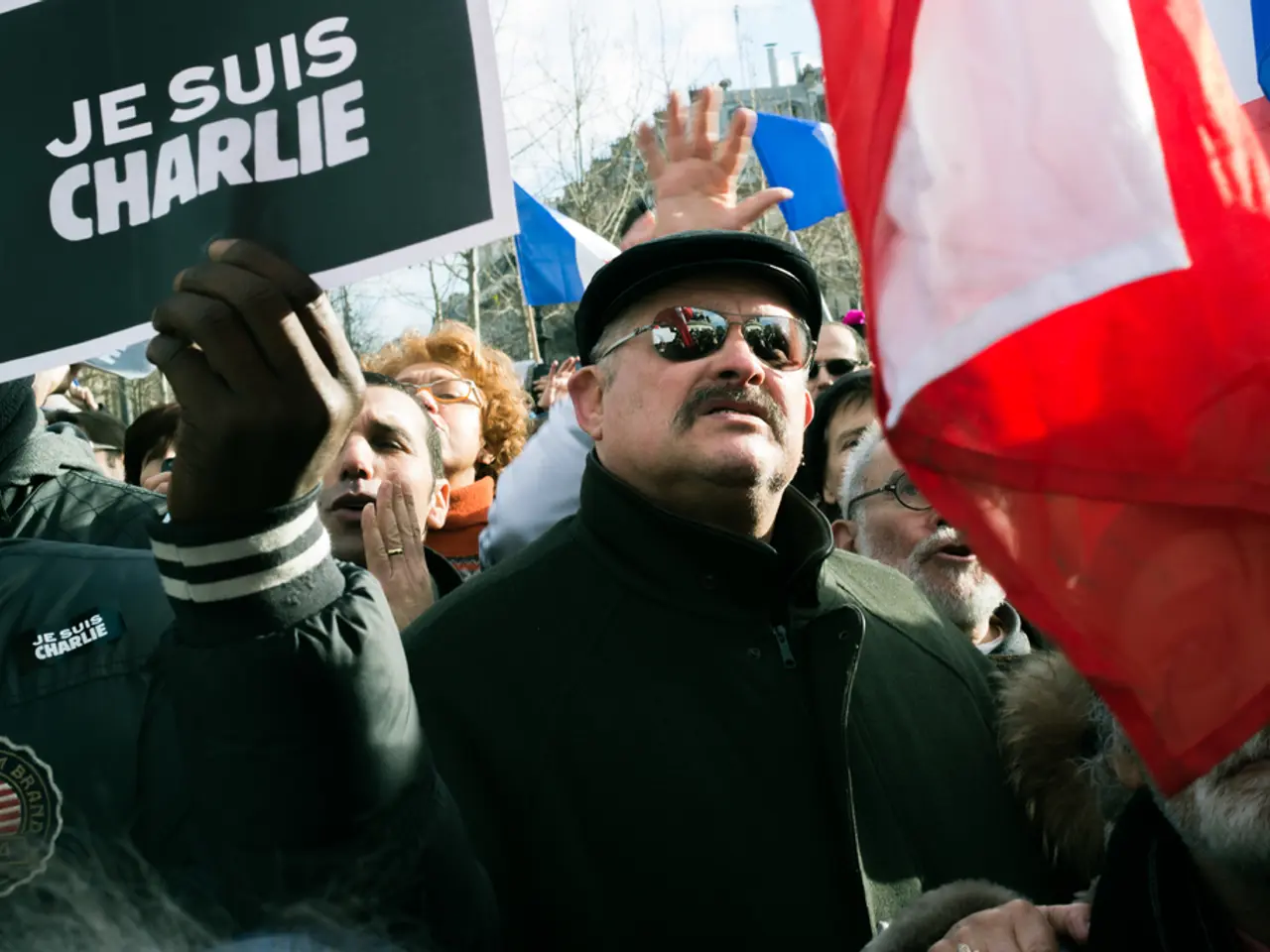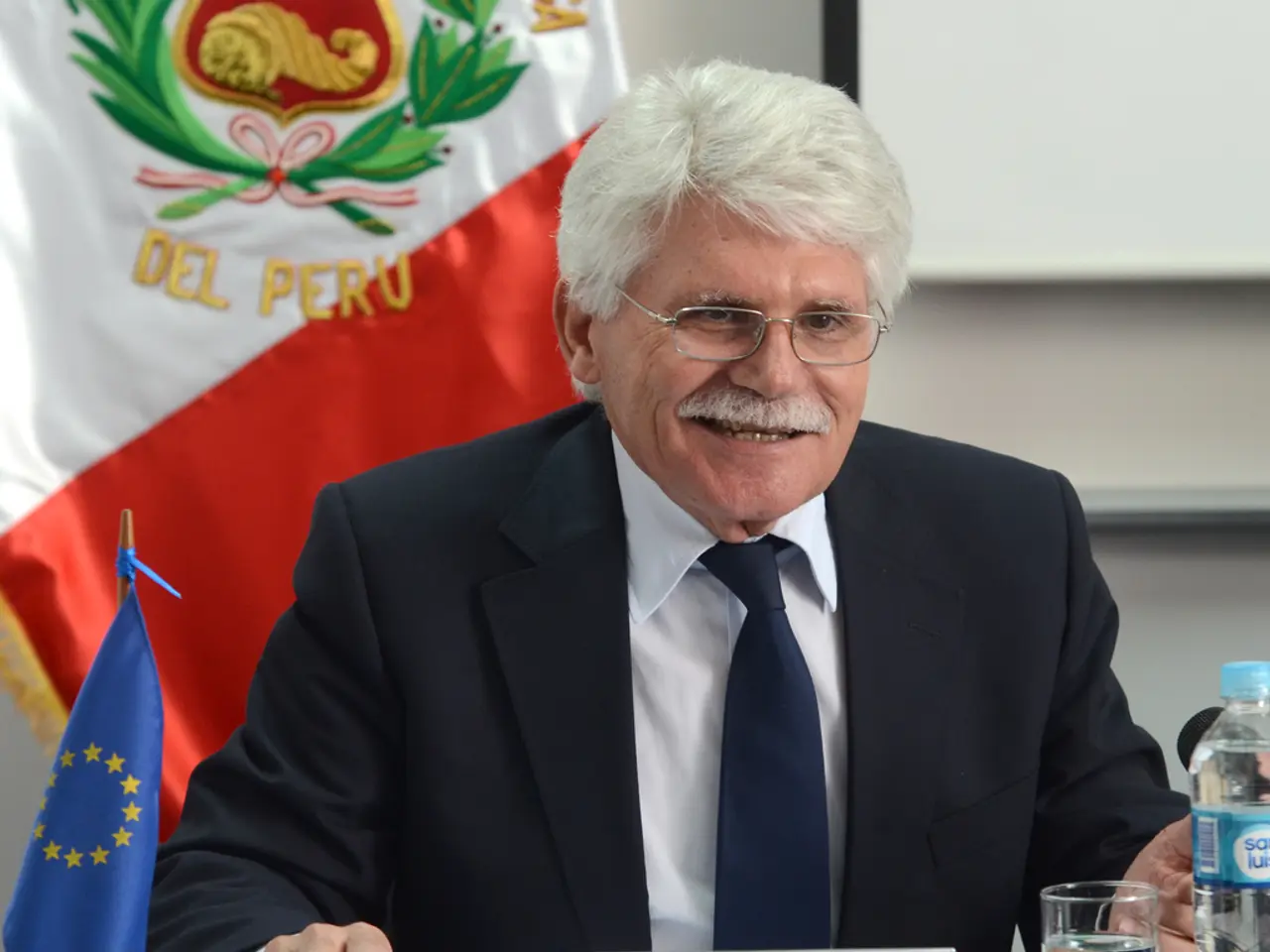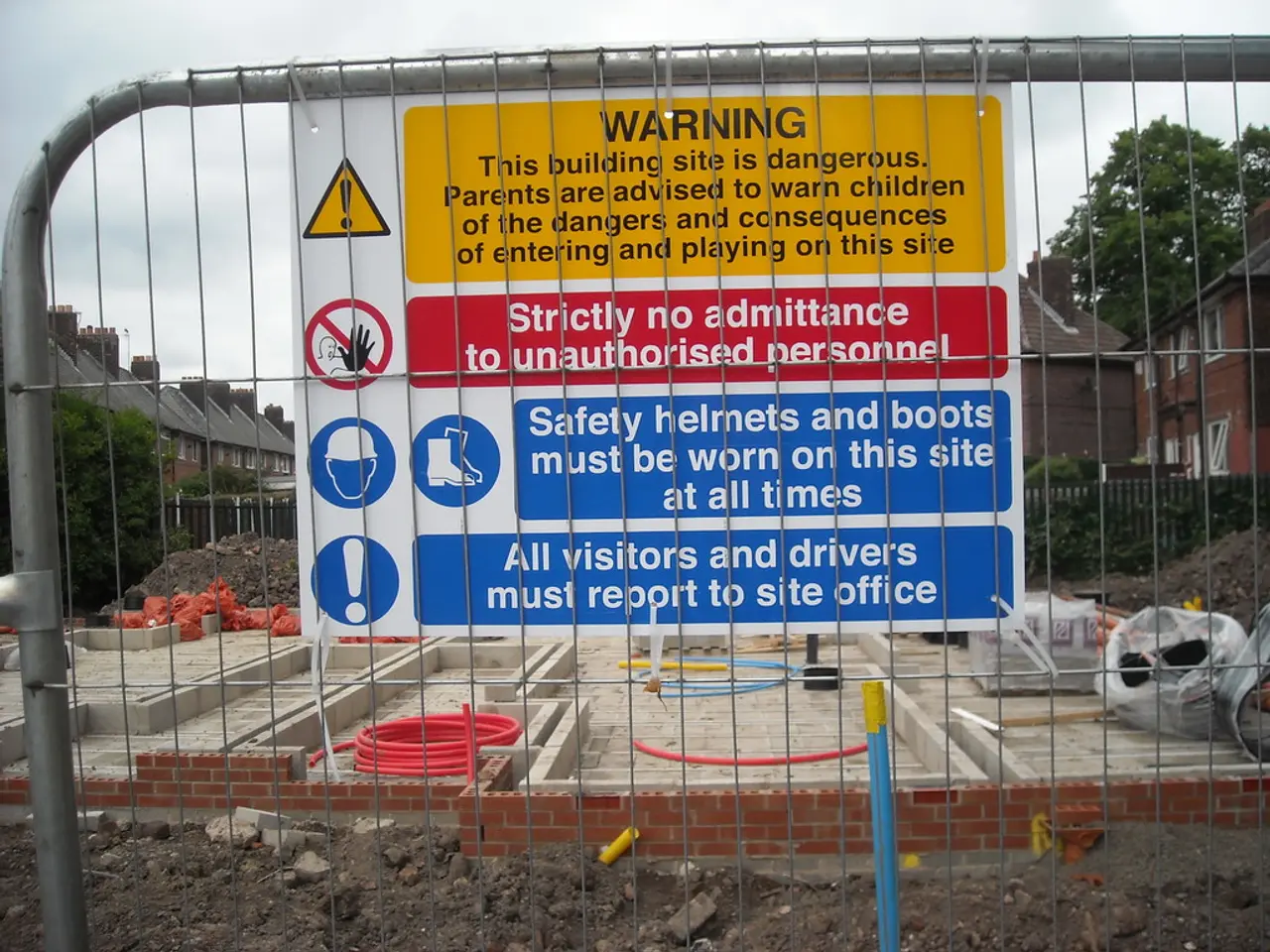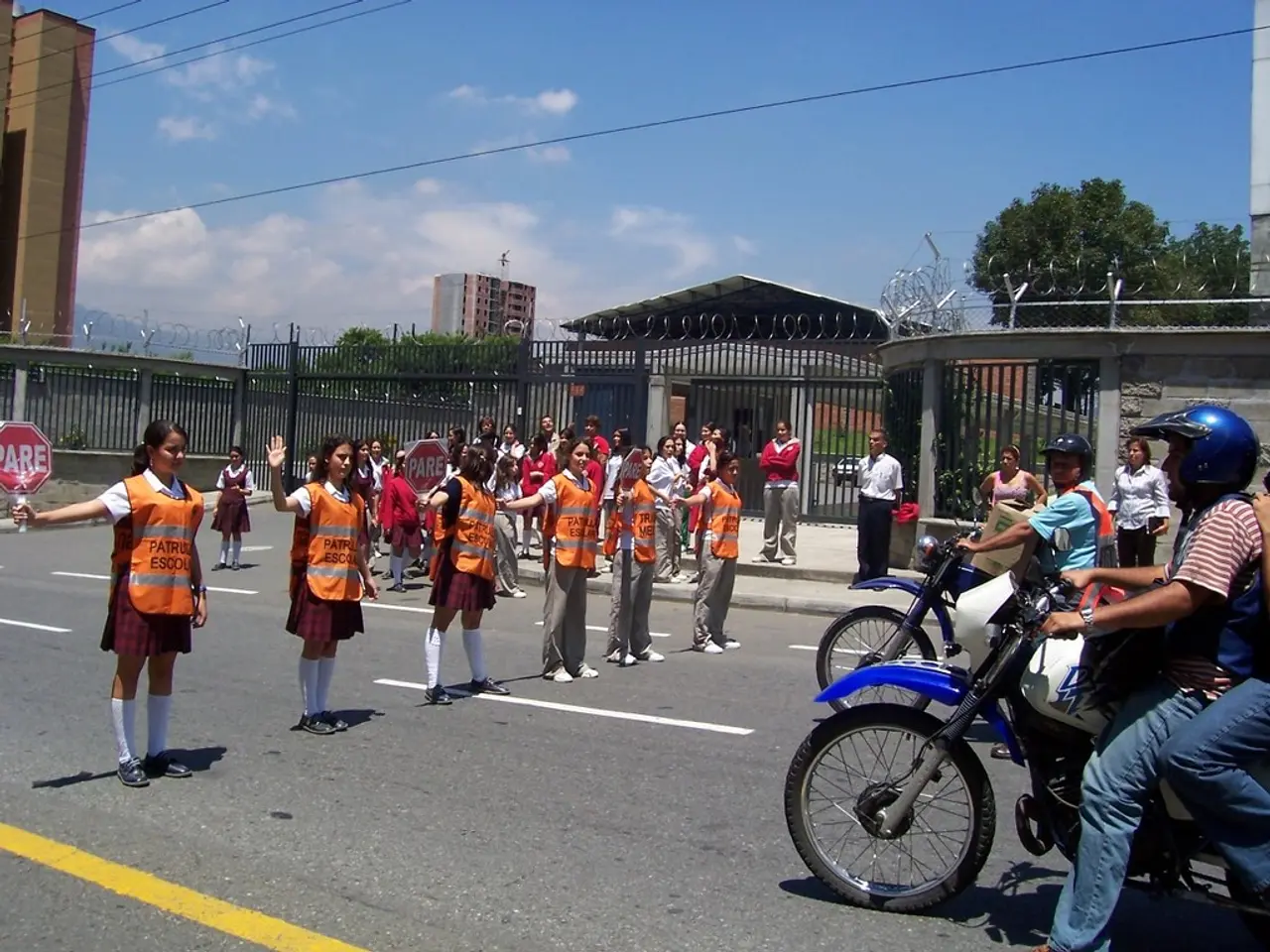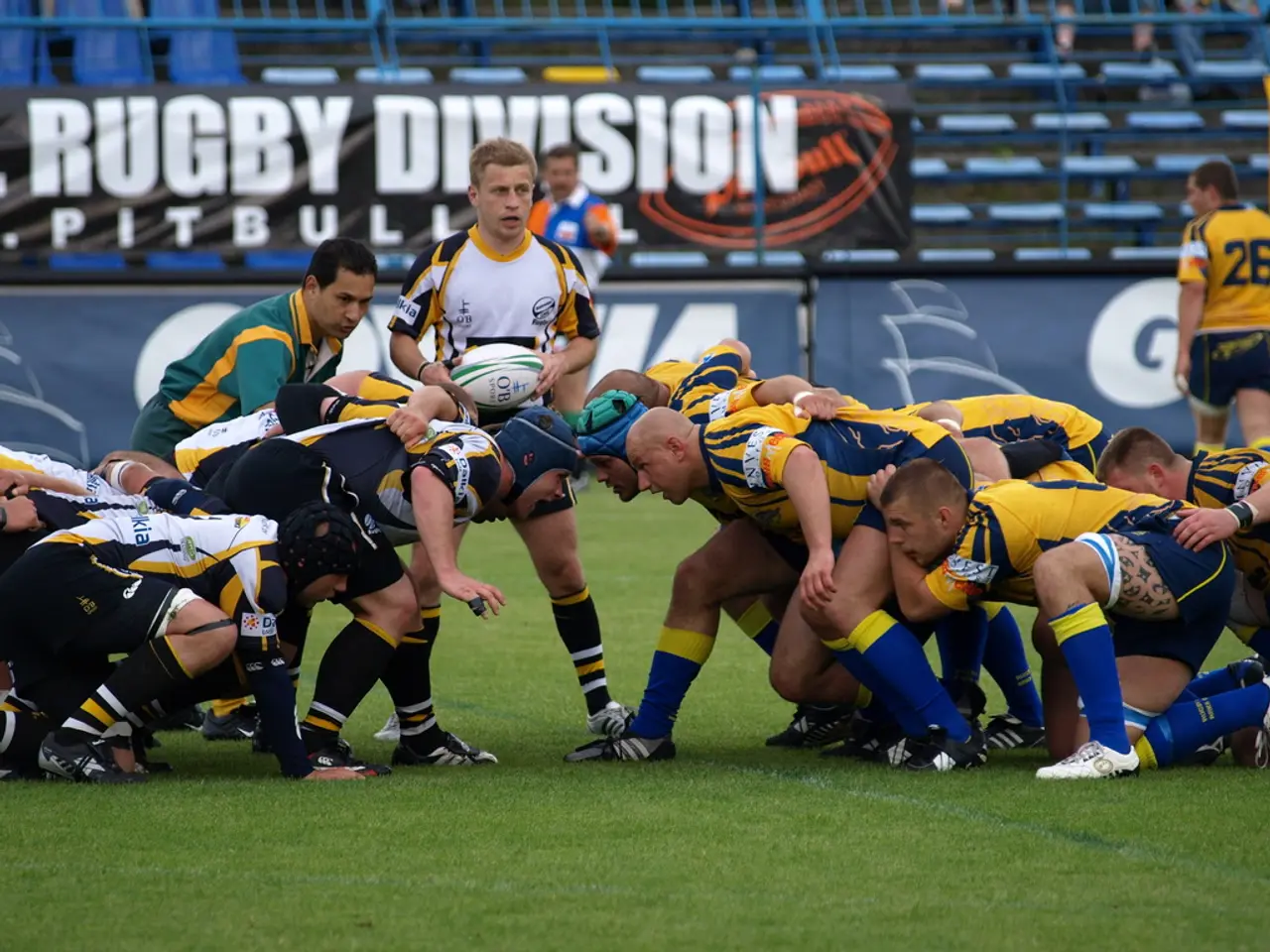Brazilian Supreme Court mandates home confinement for President Bolsonaro due to breaches of imposed limitations
Former Brazilian President Jair Bolsonaro is currently under house arrest as part of an ongoing trial, in which he is accused of masterminding a coup plot to overturn the 2022 election results that he lost to Luiz Inácio Lula da Silva. The trial is overseen by Supreme Court Justice Alexandre de Moraes, who ordered Bolsonaro's house arrest on August 4, 2025.
The evidence against Bolsonaro includes wiretaps and videos obtained during "Operation Counter-coup" that allegedly show a criminal conspiracy involving plans to assassinate top officials, shut down democratic institutions, and incite unrest via social media. The timing and context of the 2023 insurrection in Brasília, where Bolsonaro’s supporters stormed government buildings in scenes compared to the 2021 U.S. Capitol riots, also form part of the evidence.
Bolsonaro's use of social media and public messages, including those broadcasted during protests, is believed to have violated precautionary orders designed to curtail his influence on unrest. Bolsonaro denies all charges and claims the trial is a political witch hunt.
The trial has caused significant political tension both within Brazil and internationally, contributing to a diplomatic spat with the U.S., including tariffs and sanctions related to the case. The defense has added that it will present an appeal.
The Supreme Court of Brazil ordered house arrest for Bolsonaro, prohibiting him from receiving visits, with exceptions for lawyers and persons authorized by the court, and the use of a mobile phone. The defense argued that the message from Bolsonaro read at the marches "cannot be considered a violation of the precautionary measure nor a criminal act."
Bolsonaro and seven others are accused of criminal association, attempted violent abolition of the rule of law, coup d'état, and damage to public property during the protests in January 2023. The Public Prosecutor's Office requested in its final arguments in the trial that Bolsonaro be found guilty, for which he could face prison sentences of up to 40 years and be indefinitely barred from holding public office.
The Workers' Party (PT), led by Brazilian president Luiz Inácio Lula da Silva, has defended the legality of the house arrest order against Bolsonaro. The defense of Bolsonaro stated that he did not violate the restrictions imposed by the Supreme Court nor did he commit any crime.
Bolsonaro has become the fourth former head of state in Brazil to be arrested since the country regained democracy in 1985, joining Luiz Inácio Lula da Silva, Fernando Collor, and Michel Temer. Brazilian Senator Flavio Bolsonaro called for the Senate to initiate a process of impeachment against Supreme Court Justice Alexandre de Moraes.
Meanwhile, the Trump administration has imposed tariff sanctions and revoked the visas of eight Supreme Court justices, including lead judge Alexandre de Moraes, in its support of Jair Bolsonaro. The Department of the Treasury has designated De Moraes under the Magnitsky Act, allowing it to sanction foreign citizens involved in acts of corruption or human rights violations, and to freeze assets and properties they may have in the U.S.
Edinho Silva, the leader of the PT, wrote on social media that if the order is not complied with, the Judicial Power has the prerogative to increase the proposed penalty. Deputy Eduardo Bolsonaro, another son of Jair Bolsonaro, has stated that the house arrest order is a "crude abuse of power to silence the leader of the opposition." Silva also stated that "defenders of democracy" must stand "on the side of the law" to ensure the democratic system emerges stronger from the ongoing process.
The trial is ongoing, with a verdict expected by the end of 2025. Bolsonaro is also barred from the next presidential election due to a separate abuse of power conviction by Brazil's top electoral court. The situation deeply divides Brazilian public opinion and shapes political discourse on the upcoming elections. De Moraes has assured that they will judge all those responsible for the coup attempt, exercising their judicial function and without being intimidated by threats.
- The ongoing trial of former Brazilian President Jair Bolsonaro, accused of masterminding a coup plot, is a significant point of contention in both domestic and international politics, with the U.S. imposing tariffs and sanctions in support of Bolsonaro.
- Bolsonaro's trial, overseen by Supreme Court Justice Alexandre de Moraes, has revealed evidence such as wiretaps, videos, and the 2023 insurrection, including plans for assassinations, shutting down democratic institutions, and social media incitement, branding it a crime-and-justice issue.
- The trial's potential impact on policy-and-legislation extends beyond Bolsonaro's individual case, as the Public Prosecutor's Office has requested a prison sentence of up to 40 years and an indefinite bar from public office for any conviction, shaping the future of Brazil's crime-and-justice landscape and political dynamics.
